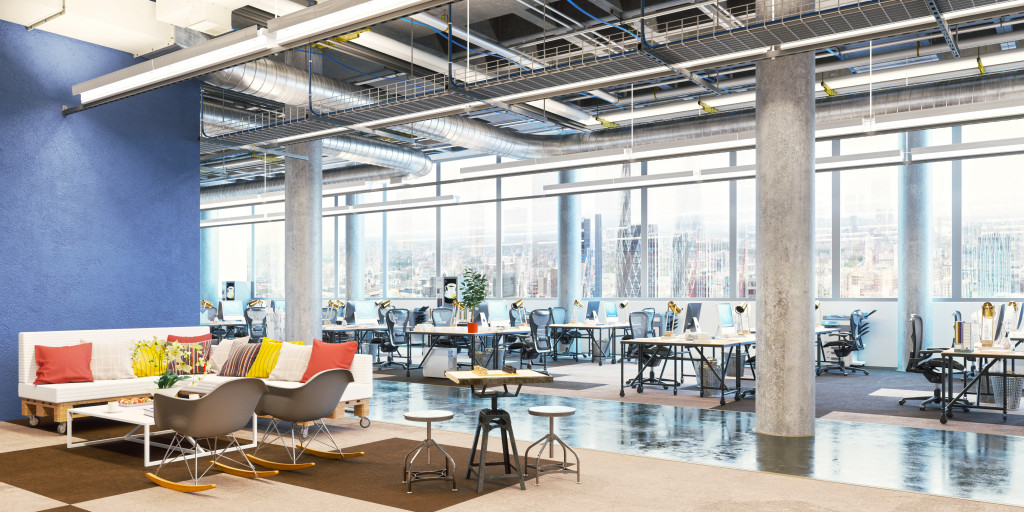Offices are necessary for most businesses, but the pandemic has forced many companies to reevaluate their office space needs. Working from home has been a success for some, and they have decided to downsize or even eliminate their office space.
Others have found that they need the structure and social interaction that an office provides and plan to expand their space. However, one thing is sure: physical offices will be essential once the pandemic subsides and quarantine restrictions are lifted inside the country. With this in mind, it’s vital to know the differences between buying and renting an office.
Renting an Office
Renting an office is often the best choice for small businesses or businesses just starting. When you rent an office, you have the flexibility to move as your business grows or scales back. Here are the advantages and disadvantages of renting an office.
The Pros
Maintenance and repair
When you rent an office, the landlord is responsible for maintaining and repairing the property. This can be a significant advantage, especially if you start a business on a tight budget. Moreover, you don’t need to chase after maintenance crews or hire services. Instead, the landlord will do it for you.
Easier to Move
If your business is rapidly growing or if you need to downsize quickly, renting an office space gives you the flexibility to change locations with ease. For example, you can sign a short-term lease if you only need the office space for a few months. On the other hand, if you decide that you want to move to a different city or country, you can simply cancel your lease and move out without any penalties.
Less Risk
Building an office space conveys a lot of risks. The cost can depend on the state, but building an office can cost up to $600 per square foot on average for a state like New York. So, for a 3,000-square-foot office, you’re looking at close to $2 million. If your business fails or can no longer afford the space, you will be stuck with a significant loss.
The Cons
Less Control Over the Office Space
When renting an office, you have less control over the space. For example, you can’t make significant changes to the property without the landlord’s permission. If you want to paint the walls or change the flooring, you must get approval first.
Other Tenants
One of the most significant disadvantages of renting an office space is that you will be sharing the building with other tenants. This can be a problem if you have sensitive information or if you need to keep your business operations private.
Landlord Problems
If you have a problem with the landlord, it can be difficult to resolve. For example, if the landlord doesn’t make repairs on time or if they raise the rent unexpectedly, you may have little recourse.
Buying an Office
Buying an office space has its advantages and disadvantages. Here’s what you need to know before making a decision.

The Pros
More Control Over the Office Space
One of the biggest advantages of owning an office is that you have complete control over the property. You can make changes without needing approval, and you don’t have to worry about other tenants.
Build Equity
When you own an office, you have the opportunity to build equity. As the property appreciates in value, you will be able to sell it for a profit or use it as collateral for a loan.
Predictable Monthly Expenses
Another advantage of owning an office is that your monthly expenses will be more predictable. Unlike renting, where the landlord can raise the rent at any time, your mortgage payments will stay the same for the duration of the loan.
Access to Mortgage
If you finance the purchase of an office, you may be able to deduct the interest payments on your taxes. Additionally, some mortgage companies offer special mortgage products for businesses that can make it easier to qualify for a loan. Making it a great investment option in the long run.
The Cons
Upfront Costs
One of the biggest disadvantages of buying an office is the upfront cost. In addition to the purchase price, you will need to pay for closing costs, repairs, and renovations.
Maintenance and Repair
Maintenance and repair are going to be a constant part of your expenses, making this option a bit more expensive in the long run. Make sure to always save one percent of your overall property cost every year, so you have money for this expense.
Tied to One Location
When you buy an office, you are tying yourself to one location. If you decide to move, you will need to sell the property first. This can be difficult, especially if the market is slow.
So, what’s the best option for your business? It depends on your specific needs and circumstances. If you need a lot of control over the property and plan to stay in one location for a long time, buying an office may be the best option. However, if you’re starting or you’re not sure how long you’ll need the space, renting may be a better choice. Consider your circumstances and choose the right office for your company.





